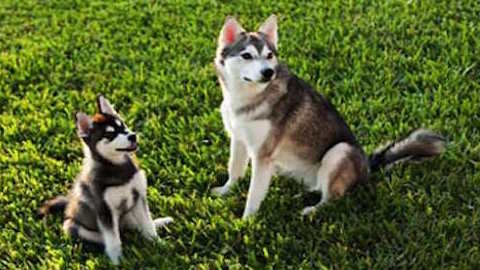- MENU
- HOME
- SEARCH
- WORLD
- MAIN
- AFRICA
- ASIA
- BALKANS
- EUROPE
- LATIN AMERICA
- MIDDLE EAST
- United Kingdom
- United States
- Argentina
- Australia
- Austria
- Benelux
- Brazil
- Canada
- China
- France
- Germany
- Greece
- Hungary
- India
- Indonesia
- Ireland
- Israel
- Italy
- Japan
- Korea
- Mexico
- New Zealand
- Pakistan
- Philippines
- Poland
- Russia
- South Africa
- Spain
- Taiwan
- Turkey
- USA
- BUSINESS
- WEALTH
- STOCKS
- TECH
- HEALTH
- LIFESTYLE
- ENTERTAINMENT
- SPORTS
- RSS
- iHaveNet.com: Pets

What to Do If Your Dog Doesn't Listen
by Stacy Braslau-Schneck
Teach your dog to focus! The world offers lots of distractions; our trainer offers simple steps to keep your dog's attention
There are two types of focus we might expect from our dogs: cued and uncued.
A dog who pays attention to you uncued is the one who "checks in" every so often to see what you're up to and if he should be involved. Then there are times when you want to tell your dog to pay attention to you, on a cue.
The Name Game
Some people like to use "Look," "Watch me" or "Pay attention" as the cue to look. I prefer to simply use the dog's name. Whatever cue you use, start by calling it out in a cheerful, enthusiastic tone of voice. In a low-distraction environment, this might be enough to get your dog's attention. As soon as he looks, mark that moment by saying "Yes!" or using the clicker, and follow that with some sort of reward -- a tiny food treat, the toss of a ball, hearty praise, etc.
If your tone of voice is not enough to gain your dog's interest, you can use something that you're pretty sure will, such as crinkling a treat bag, waving a treat by your dog's nose, squeaking a toy, etc. Even consistently pairing your cue with something that naturally gains the dog's attention can eventually work, as long as it pays off for the dog.
It's important, however, to always recognize those situations where you'll need that extra something to get your dog's attention, and to then be sure to use your bait the first time you call him. If you get in the routine of calling your dog few times and then busting out his favorite treat to grab his attention, you might actually train him to ignore you until the prize appears. You end up with a seemingly stubborn dog that actually learned a form of "Leave it."
This name game -- call, mark and reward -- teaches your dog to look back at you when you call its name. You want to reward the speed of her response; you should only say her name once, and she has only one second to respond to this limited-time offer. If she doesn't, you can show her the prize she was going to win, but put it away.
Check In
You should also capture and reward those moments when your dog voluntarily checks in with you. Any time you see your dog's eyes on you, you can mark it (verbally or with a clicker) and reward your dog with praise, a toy or a treat. This is uncued, so don't call your dog's name or use any other command. Just wait for it. Your dog will learn to check in with you with some frequency.
A variation on this is the "Find It/Find Me" game. Let your dog see you toss a small food treat on the ground and say "Find it." Wait for him to eat it and then look back to you for another one. At that moment, you mark and reward. The reward could be tossing another treat for another round of the game. (This is especially useful for reactive dogs that might need to learn to look away from their triggers and then focus on their owners.)
Start Easy
All training should be started in a low-distraction environment. If your dog's focus is already challenged, it's more difficult to be successful. A dog that's already had a chance to practice attention in a quiet, boring environment will find it easier to remember this game when there are small distractions, and later when there are greater ones. Remember: If you're not sure you can get your dog's attention, don't allow her or him to be off-leash or uncontained.
Also, remember that if you are calling your dog's attention to scold or punish or to involve your dog in an activity it doesn't like (taking baths, getting its nails clipped, being put away while you leave), your dog will learn to be deaf. Be aware that when a dog deliberately turns its head away, that might be a sign of stress or a calming signal that indicates that the dog is uncomfortable with something.
Be Reasonable
Take a moment for realistic self-reflection. Do you always instantly respond when someone calls your name? There are times, maybe each day, when you say "Just a second!" because you are engaged in something that has previously caught your attention. While we can train dogs to higher expectation of responsiveness, keep in mind that it will take training. Be patient while you put in the effort and you'll be rewarded with a dog that quickly looks to you expectantly.
Photo: @iStockphoto.com/kali9
AUTOS | HOBBIES | EDUCATION | FAMILY | FASHION | FOOD & RECIPES | HOME DECOR | RELATIONSHIPS | PARENTING | PETS | TRAVEL | WOMEN
Article: Copyright ©. All rights reserved.
What to Do If Your Dog Doesn't Listen - How to teach your dog to focus